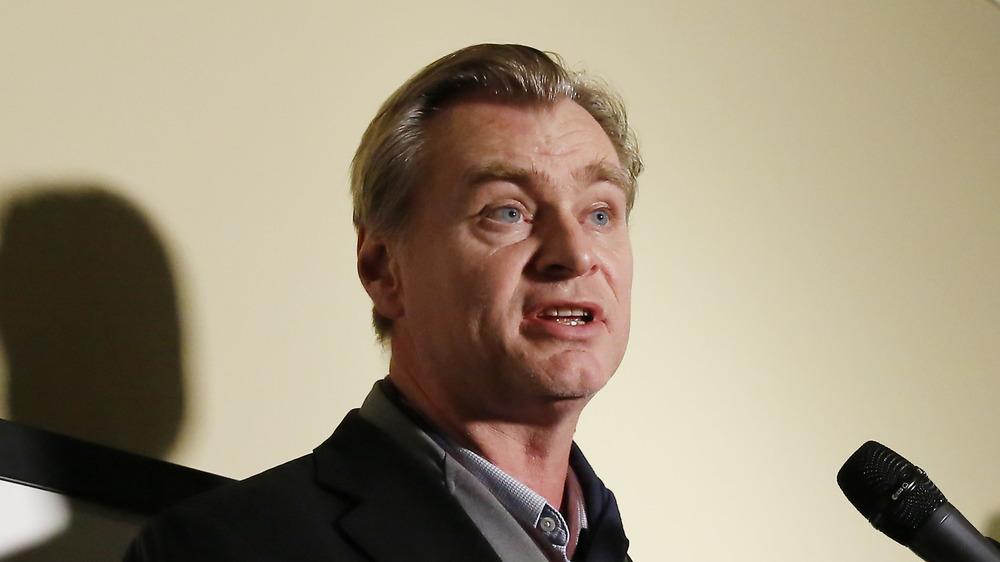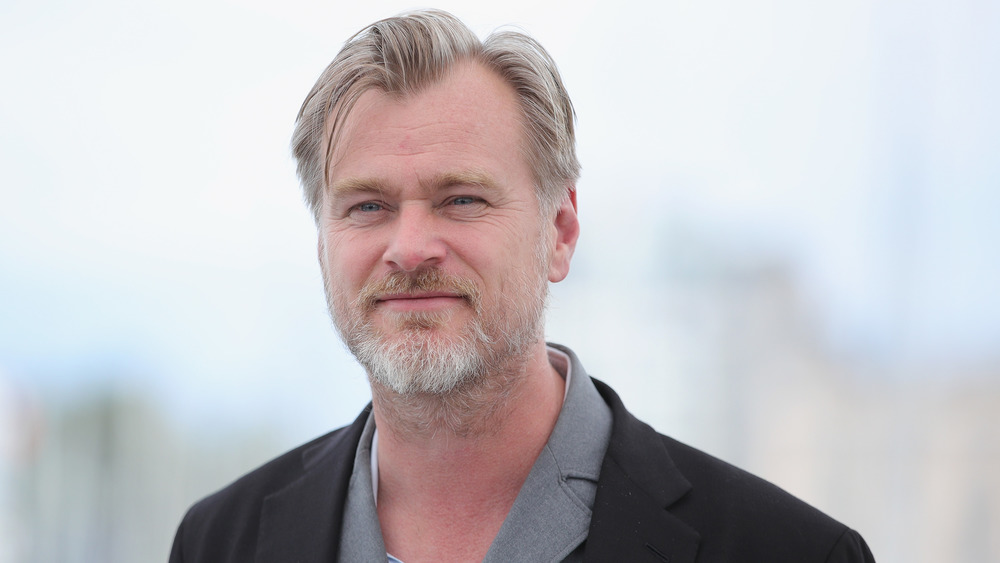Christopher Nolan Has Choice Words For HBO Max And Warner Bros.
2020 will forever live in infamy as one of the most difficult years in history for the entertainment industry, especially for big-screen productions of various sizes and genres. The COVID-19 pandemic put the world at a standstill that, as of this writing, has yet to end, and continues to exert pressure on businesses everywhere. Movie theater chains across the globe have had it particularly bad, as months with closed doors led to increasing financial strain that has many questioning the viability of their business model. To make matters worse, Warner Bros. recently unveiled a plan that'll inadvertently speed up the process.
In November 2020, news broke that the next big DC blockbuster, Wonder Woman 1984, is slated for a simultaneous HBO Max streaming release and limited theatrical run. Shortly after, Warner Bros. doubled down on this decision, announcing that the studio's entire 2021 slate — including highly anticipated titles like The Matrix 4 and Dune — would follow the same release plan as Wonder Woman 1984. This moment marks a clear shift in how the masses will consume media going forward, and can potentially play a key factor in wiping the cinema from existence. After all, why go out to the theater when you can stay home and stream?
While this choice makes logical sense, given the state of the world, it's no less controversial, facing serious opposition from audiences and those in the business. On December 7, 2020, the movement against the hybrid release model gained a major voice on its side: longtime Warner Bros. collaborator Christopher Nolan. The Oscar-nominated director didn't hold back his feelings in a strongly-worded statement to The Hollywood Reporter either, making it abundantly clear where he stands.
Christopher Nolan doesn't sugar-coat his disdain for Warner Bros.' plan
Pinning both Warner Bros. and HBO Max as the culprits behind a potentially dangerous precedent, Nolan told THR, "Some of our industry's biggest filmmakers and most important movie stars went to bed the night before thinking they were working for the greatest movie studio and woke up to find out they were working for the worst streaming service."
From Nolan's perspective (one many share), by giving into the pressures of the public health crisis and leaning into streaming, Warner Bros. is taking the film industry down a path it can't backtrack from — taking everyone into uncharted and financially destructive waters. The filmmaker backed up this point by saying, "Warner Bros. had an incredible machine for getting a filmmaker's work out everywhere, both in theaters and in the home, and they are dismantling it as we speak. They don't even understand what they're losing. Their decision makes no economic sense, and even the most casual Wall Street investor can see the difference between disruption and dysfunction."
In Nolan's mind, Warner Bros. is dismantling a release system that hasn't gone wrong before, and in doing so, is also threatening the livelihoods of many creators as well as the overall value of their work.
It's no secret that Nolan is incredibly passionate about his films — look no further than his rollercoaster of a campaign to get Tenet out to theaters as evidence of such devotion. For him to openly speak out against Warner Bros., a studio he's worked with for nearly two decades on everything from The Prestige to The Dark Knight Rises, says quite a lot about the gravity of the studio's decision.

